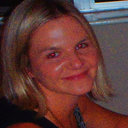Effects of Cardiorespiratory Fitness and Obesity on Salivary Secretory IgA and Alpha-Amylase in South African Children.
Keywords
Abstract
This study examined whether cardiorespiratory fitness (CRF) and body composition are associated with salivary secretory immunoglobulin A (SIgA), a mucosal immunity marker, and salivary alpha-amylase (sAA), a marker of stress-related sympathetic nervous system (SNS) activity, in South African children. Morning (7:30-8:00 a.m.) saliva samples were collected from 132 children (10.05 ± 1.68 years old, 74 females, 58 males). Body composition, resting blood pressure, and predicted maximal aerobic capacity (VO2max) were determined, and SIgA and sAA were quantified. Obese children had significantly higher sAA compared with overweight and normal weight children (p < 0.01). SIgA secretion rate was significantly lower in obese and overweight vs. normal weight children (p < 0.01). Multiple-linear regression analysis revealed that body mass index (BMI) (p < 0.05) and diastolic blood pressure (DBP) (p < 0.05) were independent predictors of sAA with CRF acting as a mitigator. Age and BMI predicted SIgA secretion rate (p < 0.05) with BMI (p < 0.001) found to be an independent predictor of SIgA secretion rate. Obesity, based on BMI, was associated with elevated SNS activity and lowered mucosal immunity. CRF-mitigated sympathetic activation was not associated with mucosal immunity.



